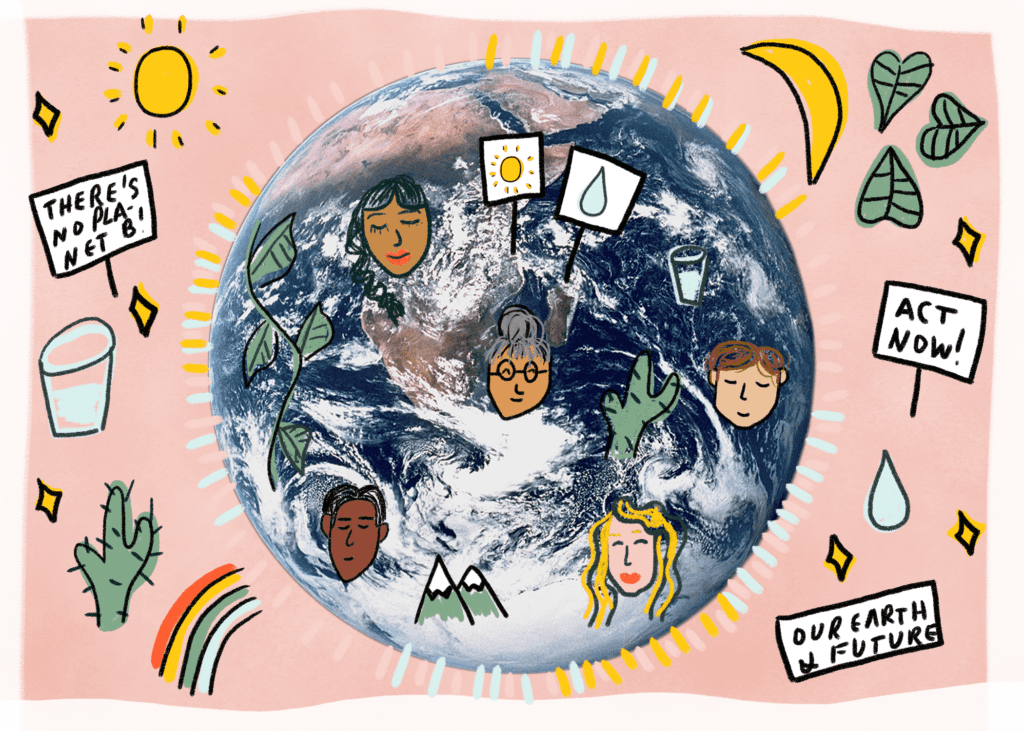Written by Victoria Drain, Kira Kelley, and Timothy Cominghay
March 21, 2024
******
To those choosing to risk arrest,
We write to you to start a conversation. We don’t have all the answers, but we do have some reflections. We want to share them with you–people who we join with in love, in world building, and in liberation.
In particular, we want to talk about this very specific scenario: when people get arrested as part of a social justice campaign and then turn down a settlement offer that amounts to a functional dismissal of the case in order to go to trial as a matter of principle, and not of strategy.
These settlement offers vary in name from state to state, but are often referred to with language like “deferred dismissal,” “continuance for dismissal,” “deferred prosecution,” “stet,” or “placed on file without a finding.” Taking this type of offer often involves paying a fine and/or meeting specified conditions,[1] ie not getting rearrested, for a certain amount of time. The legal result after the conditional period is over is comparable to a “win” at trial. Notably, the fine is almost always significantly less than the expenses of going to trial, and the conditional period is either similar to or much shorter than the amount of time a defendant would be under pre-trial bail conditions.
When a defendant turns down a deferred dismissal, they give up a near-certain opportunity to avoid a conviction,[2] a criminal sentence, and all of the collateral consequences that go along with it, in exchange for the experience of going to trial. They decline a “get out of jail free” card and choose instead to fight in court, an uphill and resource intensive battle, for the mere possibility of the guaranteed outcome they just turned down.
SOMETIMES, turning down a deferred dismissal is a powerful decision that furthers individual and movement goals. We’re not saying “never turn down a deferred dismissal.” We just want everyone to think through what they’re trying to accomplish. For example, a group of codefendants may decide to tell the State that none of them will accept a deferred dismissal settlement offer unless and until the same offer is extended to the whole cohort (including to more vulnerable defendants, those with higher charges, etc). That strategy freed a lot of defendants following the mass arrests along Line 3 in so-called Minnesota. We’re not here to tell you what decision is right for you or your codefendants, just to invite everyone to thoroughly interrogate defendant legal strategy.
Here’s a bit more from each of us about who we are, why we care so much about this, and what we hope people will think about and discuss as part of their legal defense strategies.
****** TORI ******
I am a 41 year old, white trans woman currently locked down on Ohio’s Death Row. I’ve spent the majority of my life incarcerated and for 20+ years now have unapologetically resisted and stood up against the system in its entirety and the techniques it uses to keep us marginalized, divided and oppressed.
To be very clear, I am about this resistance life to the fullest. I embrace and understand the “never gonna capitulate,” “never gonna fold” mentality. And I stand with, and respect anybody else who’s about that for real too. I admire those willing to risk their well-being and freedom for the cause because I’ve made those sacrifices as well, and I know how it feels.
Regardless of what front lines you’re fighting on it is imperative that we calculate intelligently and consider the “bigger picture.” Whether you’re taking on the prison industrial complex, or white supremacy/racism, or land protection or climate change, you must understand it’s all part of the same system. Therefore we’re connected and our actions or inactions can either help or hinder our common goal of dismantling this system for good.
When a prosecutor offers a no-strings attached dismissal, and you turn it down thinking it’s righteous or an act of resistance, you are wrong. No strings attached, no snitching, no surrendering, no incarceration equals a second chance at contributing to the fight again in an impactful way. Offering yourself up as a make-believe martyr, further strengthening the system and weakening your cause is actually the very definition of surrendering and capitulating.
Consider this … going to trial just because you think it is honorable takes time and money away from lawyers & paralegals who’s resources are extremely limited and hard to come by. There are countless people right now who are in dire need of counsel and who will never have dismissal offered or bond considered, and who’s incarceration is imminent. Diverting resources from these people weakens us as a whole. Also, by going to trial and volunteering for incarceration and/or monetary consequences you are in fact strengthening the system. Paying the court restitution, court cost, fines and fees. Paying the jail or prison for phone calls, messaging, commissary only makes the system that much more powerful.
In conclusion, I believe the majority of us all have the same end game in mind. There’s always gonna be people in it for other reasons like acceptance or notoriety, but I know there is more of us who are in this for real, and by being unfiltered and honest with one another, and being able to calculate and coordinate together I feel like we can maximize our resources and continue our movements in our favor. I don’t claim to have all the answers or think I am better or worse than nobody. Doing time for so many years around so many like-minded convicts allowed me to learn about these kind of things, but first I had to be willing to listen and learn. I’m just offering my perspective based on my experience.
Hopefully it helps.
– Victoria Drain
****** KIRA ******
Two experiences inform my thoughts in this conversation. First, being Tori’s best friend, and treasuring the love we have for each other despite a system designed to keep millions of us separated by incarceration. Second, from supporting and learning from hundreds of activists who find sacred meaning in the fight to build a better world.
We must refuse to worship the same institution that operates death row. Like police, our colonizer legal system exists to protect private property, hoarded wealth, and elite interests. It breaks my heart when people glorify trial. I know a lot of folks intellectually will agree with me, but many of those same people still turn down opportunities to have their cases outright dismissed. If someone is lucky enough to have the option of beating their charges without going to trial or becoming an informant, why stay in? Here are some purported justifications for rejecting dismissal offers that I have observed, and my concerns with these pretexts.
Martyrdom/cleansing of (white) guilt. Rather than crafting strategies to meet goals, people purposefully suffer either to atone for their privilege or because they conflate suffering with efficacy.
Wanting care. Vulnerability is hard! Rather than admitting to feeling sad, lonely, or under-appreciated, and asking directly for support, people can say “I’m going to be brave and fight!” and go to trial, where others then give care without the defendant having to ask.
Wanting forgiveness. After someone harms or angers people in their community and others withdraw from them, if that person goes to trial people often put their boundaries aside to support the defendant. Forgiveness happens without any processes of accountability or growth. Defendants opt for the carceral violence of court over practicing transformative justice in their community.
“Solidarity” with other victims of state violence. People citing nebulous “solidarity” as a pretext for trial seem to lack close personal relationships with folks stuck in prison who are actually asking for this, and can’t explain how their trial would help others get free or survive their incarceration.
Not wanting to “make a deal with the state.” But by keeping a case open, a defendant makes an ongoing deal with the state, agreeing to be subject to its coercive prosecutorial power.
Not wanting to be “guilty” The offers we’re talking about in this letter don’t typically involve admitting guilt. Regardless, the “I’m not guilty–I didn’t do anything wrong!” stance is based on an elitist idea that protestors are not “actual criminals,” and ultimately plays into violent carceral logic parsing “innocent/good” from “guilty/criminal/bad.”
Wanting to “make the state work.” State agents get paid for every minute of their time. Plus, protest-induced caseload spikes offer a pretext for hiring more prosecutors, who then expand the State’s capacity to criminalize more people in that area. And what about the tremendous (largely unpaid) emotional, logistical, and legal labor that the movement pours into a political trial?
Glorifying court proceedings. U.S. Courts were formed to prop up colonization and racial capitalism. They are in many ways the brick and mortar embodiment of oppression. Do we really believe that our speech becomes more important when we’re inside them?
Connecting with a jury. In a jury trial, the State traps our audience under threat of their own criminalization. Plus, the judge has full control over what a jury hears. Trial is a coercive and inefficient way to pursue the vital goal of conscious-building. I look to my friend and former client Poa for a better, more direct approach to connecting with everyday people – Poa opted out of a jury trial and runs a community breakfast program in rural Vermont where they cook people pancakes, talk about social justice, and facilitate mutual aid in their community.[3]
Stubbornness. I fall for this one all the time! I fixate on trying to one-up an incompetent, bullying prosecutor instead of strategically working to further my client’s goals. Evolving and adapting our strategies is such an important skill especially when we’re caught up in competitive conflict.
– Kira Kelley
****** TIM ******
Hello friends.
My name is Timothy Cominghay. I am a proud member of the Standing Rock Sioux tribe. For most of the last decade I have been in the upper Midwest resisting extraction companies. I was arrested multiple times at both the NoDAPL and Stop Line 3 protection campaigns. I supported the arrestees for nearly 2 years after the Standing Rock occupation, and was directly involved with the creation and maintenance of the line 3 legal support systems.
As I reflect on the work I’ve done over the years I think about how often I have been asked by defendants how best to resolve their cases. I have always had the same answer: DO WHAT IS BEST FOR YOU!
What is best for you not only should align with the intent of your affinity group, its goals and morality, but it must. For too long we have simply done what our bosses and American society tells us is right, why should we continue in that way? What is the use of building a new world if it is just like the old world?
When I was arrested in the line 3 struggle, what I believed would be the best outcome for me was radically different than the one I eventually accepted. After 2 years of litigation and 5 reschedules by the state I signed a continuance for dismissal. Not because it was the easiest thing for me to do, and not out of fear. I signed it because it was what was best for me. I was burned out. I personally carried it as far as I could. It may appear my decision was selfish, and not based on what is best for the movement, but it freed myself, my legal support, and my lawyer to help others. And in the end I got the result I would have received at trial, I was not found guilty, I did not admit to any guilt. Without a clear political message, or goal of any kind, aside from being found not guilty at trial, it would have been selfish of me to use any more resources than I had to that point.
The state spent hours, months, and eventually years wearing me down, in the end they got the result they wanted; to close my case without trial. But I also got what we wanted. We used defendant solidarity to reduce the pressure and presence of the state on all the defendants. We learned lessons that are important as we move forward. We stood together as one against a murderous oppressive state. It may not have been a clear victory, but we fought them to a stand still at least one more time.
I cannot express how important the hundreds of volunteer legal workers and lawyers were in my case, how important to me they are now, and will always be; thank you so much for all your sacrifices.
We keep us safe.
– Timothy Cominghay
*******
The court process can create some incidental benefits, and we honor the tremendous power of relationship-building, ceremony, and nurturance culture that people hold at the campsite or the court tailgate party or on the zoom debrief, or wherever else we get together to support someone through trial. But we should not need the violent, resource-intensive pretext of a trial in order to build community. Relationships are the foundation of the movement and should be prioritized for their own sake. So take the dismissal if you can. Choose freedom for yourself and your community. And then use that freedom to fight like hell for those still stuck facing charges or locked up already who weren’t given that same choice.
– Tori, Kira, and Tim
[1] Obviously, if a condition on a dismissal offer is snitching, we do NOT condone that under any circumstances and you can count on us to throw down hard for your support teams if you have to go to trial to avoid cooperating with the state.
[2] Your ability to comply with the conditions of a deferred dismissal (ie avoiding rearrest) are to an extent outside of your control, especially for highly criminalized/surveilled groups. BUT, these conditions likely apply even if you don’t take the deferred dismissal, such as through mechanisms like pre-trial bail and post-conviction probation/parole agreements.
[3] Poa very kindly offered for people with questions or curiosity to email them to discuss community breakfast programs! https://pancakesforthepeople.com/, @generosity_griddle, pancakehearth@gmail.com





